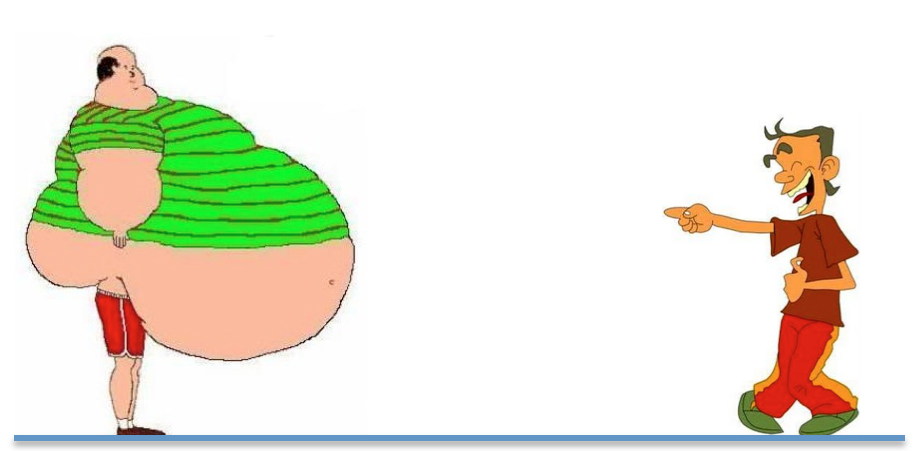Q: What do Roseanne Barr and battleship have in common?
A: They both need three tugs to get into their slips.
Roseanne, a famously robust woman, is the subject of this fat-shaming joke, one of many to be found on the Comedy Central website which has an entire category dedicated to “Fat Jokes.” But is “fat” still a joking matter?
According to TheStateOfObesity.org the rate of adult obesity has more than doubled in just the last 35 years, and it is increasingly talked and debated about in our western society. Yet, as Jane Wardle, the author of a recent UK health report, stated, ”[it is clearly shown that] weight discrimination is part of the problem and not the solution.” The media’s perception of “fat” has begun to go beyond medical jargon and has become tied to communicative dynamics of society. The attempt to provide positive examples of self-proclaimed and self-confident “fat” individuals is garnering a new wave of media attention.
In many instances, fat-feminism exemplifies this new wave of communication in media. These two issues cannot be untangled from one another; issues of fatness are tied much more intimately to the female identity and struggle than the male.
Lauren Jones, a DU undergrad said that the word “fat” makes her feel “annoyed that there is such a high standard for how to look these days… which is especially true for girls.”
Social pressures to conform to the hegemonic definition of what it means to be a woman, to be feminine and to be beautiful are hurled into our awareness through magazines, TV shows, Facebook and peers.
Singer, songwriter and Youtuber Meghan Tonjes provides a prominent example of women within popular media presenting an alternative. Tonjes, an outspoken body-positivist, comments in a video called “Fat Girl Myths,” that no matter how many sizes you drop you’ll never have a flat enough tummy, good enough skin or shiny enough hair.
As seen on shows such as Gossip Girl, the female spectrum of “attractive” goes from blonde, tall and skinny to brunette, tall and skinny. Kim Kardashian’s butt may have broken the internet, but what happens when a woman of a non-traditional form posts provocative images on the web?
Tonjes says she is best known for her body positivity and her ass, and that many would recognize her as the girl that publically accused Instagram of Insta-fat-shaming.
In 2013, Tonjes posted a cheeky pic of her bodacious bum, not unlike the millions of @JenSelters of the digital world that have gathered Insta-fame for the notoriety of their asses.
Yet Tonjes’s picture was flagged and removed due to its “pornographic nature breaking the community guidelines.”
Though I might pass on double-tapping any Instapic of a girl’s butt, regardless of size or shape, what does it say about our societal discomfort with female forms that don’t fit “the norm?” Tonjes begins to describe how fat-shaming is the not so distant cousin of slut-shaming, and it’s all just people engaging in a system of bulls**t.
Undoubtedly, the media reeks of consumer manipulation and encouragement of deteriorating self esteems.
Another DU student, Jacques Gerber, expressed this reality saying, “When I think of fat I think about the amount of times a girl has been called it by some guy…or a guy struggling while other guys bullying him.”
Fat-ism, as feminism, is a complicated issue that finds both support and misrepresentation through media. It is through the efforts women like Tonjes that new perspectives are brought to the masses. With strategized publicity and advocacy awareness, the fat movement can hopefully shed light on a variety of related body and feminist issues. Let’s continue expanding DU’s definition of “inclusivity” and all join Tonjes’s #BootyRevolution.











